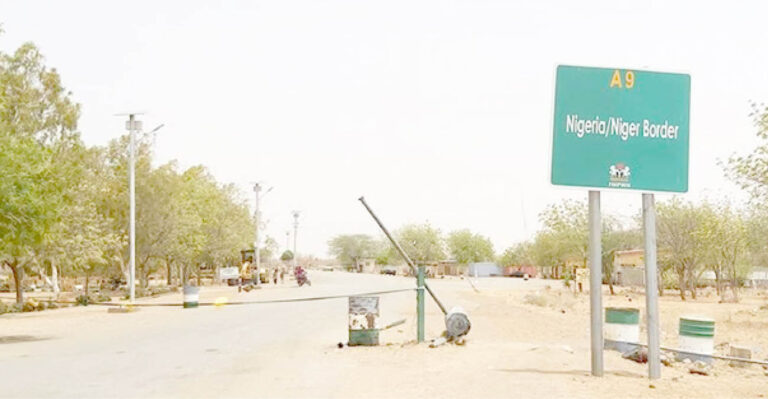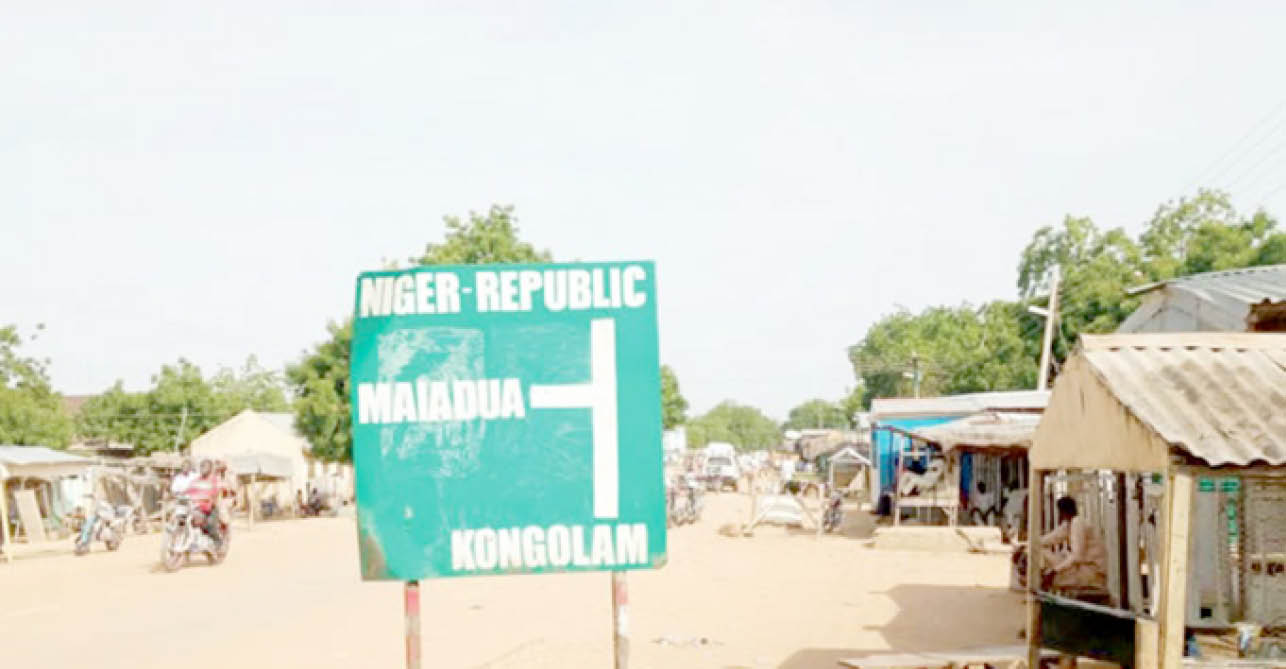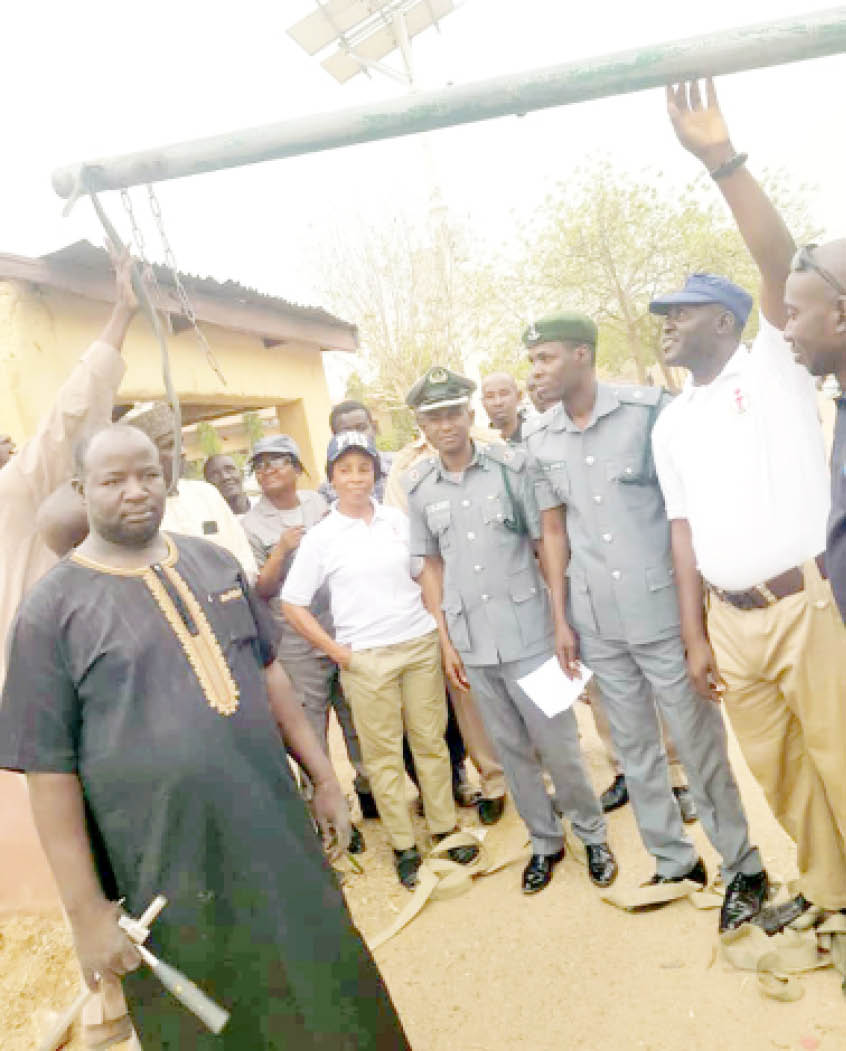72hrs After: Niger Republic Prevents Entry On Katsina, Jigawa Borders

Days after the reopening of the Nigeria-Niger Republic land and air borders by the Federal Government of Nigeria, Nigerien authorities have not said anything, even as they maintained their entry points closed.
Nigeria announced the reopening of its borders with Niger Republic on March 13, 2024.
While security operatives like the Nigeria Customs Service (NCS) and the Nigeria Immigration Service (NIS) have eased movement along border communities, their counterparts across the borders have remained adamant.
This is as residents of border communities, especially on the Nigerian side, on Thursday expressed optimism that with the directive of President Bola Ahmed Tinubu to reopen the borders with Niger Republic, life would be easier for them and their neighbours, especially in terms of trading.
President Tinubu’s directive was in line with the decision of the Economic Community of West African States (ECOWAS’) Authority of Heads of State and Government at its Extraordinary Summit on February 24, 2024 in Abuja.
The Comptroller-General of Immigration (CGI), Kemi Nandap, had in a follow-up to what Tinubu said, directed that restrictions on movement at Nigeria-Niger borders be lifted.
Nandap gave the directive through a statement signed by the acting Service Public Relations Officer, Mr Kenneth Kure on Thursday in Abuja.
She directed all comptrollers stationed at states and border commands along the Nigeria-Niger Republic border to comply promptly and lift all restrictions on human movement.
The border closure was part of sanctions to restore democratic order after the military intervention in Niger that ousted President Mohamed Bazoum.
The two countries heavily relied on each for economic and social activities, among others.
The Niger–Nigeria border is 1,608 kilometres, stretching from Sokoto through Kebbi, Katsina, Jigawa, Yobe and Borno states.
After the reopening of the land borders, our correspondents in the affected states monitored the situation around the boundary areas. Their investigations revealed that on the Nigerian side the borders have been reopened in majority of the areas, but it is a different story on the Nigerien side.
Residents who spoke with our correspondents said if the two neighbouring countries reached a common ground, it would be mutually beneficial as it would revive economic activities in the border communities.

Long way to go in Katsina
In Katsina State, residents of the border town of Kongolam, which is less than 20 kilometres from Daura, said security forces on the Niger Republic side blocked their own part.
Lawan Secretary, who spoke to our correspondent said, “Shortly after we spoke with you about the border reopening on the Nigerian side, the Nigerien police brought three of their operational vehicles and blocked the pathway, using stones and sand.
“They told our people who were about to cross that they should go back as the border had not been reopened on their side,” he said.
Secretary, who said he was not happy with the development, added that whatever the situation was, there was the need for understanding between Nigeria and Niger.
“Just remember that it is not only about business transactions, we have marital ties with the people of Niger.
“Also, remember that our people have been importing and exporting certain commodities with extreme difficulty through illegal entry points, spending a lot of money to find their way.
“That alone has helped in raising the cost of commodities because whatever you spent along the way must be reflected in the selling price,” he said.
Corroborating the earlier response, Alhaji Lawal Planner Kongolam, said the road that leads to Niger Republic was blocked by the Nigerien police, cutting short the happiness of affected persons on both sides.
He said the items mostly traded across the borders in their axis included dates, soap and other confectionary products, as well as grains and cattle. He added that with the high rate of foreign exchange with regard to the CFA, cattle had become more expensive.
He, however, expressed confidence that if there would be mutual understanding between the Nigerian and the Nigerien authorities, there would be gradual return of trading activities; and hopefully, the exchange rate of the CFA would come down.
At Jibia town, also in Katsina State, residents were in a joyous mood, saying their lifeline would soon be restored.
Al-Mustapha Danye said many people were forced out of business as they had eaten up their capital, but with the latest development, there was hope for a new life.
“Our markets used to be frequented by traders from neighbouring communities from Niger Republic. On our part, we used to import farm produce, such as tiger nuts, dates and beans.
“We also have other commodities that pass through Niger on transit from Cotonou. We believe that if normalcy returns, prices of these commodities would crash and life would be easier for us,” he said.
Haidar Lamama, a trader and resident of Magama in Jibia, said the border there had been opened by both Customs and Immigration officers on the Nigerian side.
He expressed optimism that prices of all commodities would fall and life would become easier for the people of the area and the country in general.
When contacted, the spokesman of the Nigeria Customs Service, Katsina Area Command, T. Y Balarabe, said the border in Jibia was reopened following the president’s directive.
Niger border at Maigatari still closed
Our correspondent reports that the Maigatari border in Jigawa State was reopened on Thursday at exactly 6am, according to high-ranking security officials in charge of the area. However, the Niger Republic’s security operatives have kept theirs closed.
“They have refused to open theirs, but they are not asking anybody not to cross over into their land by foot.
“All items that are legally allowed will now be transported through the border following the right channels. But items that are banned remain banned. Things like beans, if you pay duty you would be allowed to bring it into Nigeria,” one of the officials who did not want his name mentioned because he was not authorised to speak said.
On their part, residents of Maigatari and environs have expressed hope that once the borders on both sides are fully opened, the development would yield positive results.
Speaking on behalf of the community, the representative of the district head of Maigatari, Yakubu Aminu Wakili said, “We thank God that the border has been opened, and as directed by the Federal Government of Nigeria, all seized items have been returned to us.
“We now move freely but without cars. But from Niger Republic side, they are yet to open their border. It is still manned by security operatives.
“We cannot say anything on the reason they are yet to reopen the borders because we also just opened ours. But we are hopeful that they would reopen theirs.
“For business activities, we are still where we were since the border was closed. The changes are still minimal but we are optimistic that everything will come back to flourish like before.”

Nigeria/Niger borders in Kebbi still shut
Similarly, despite the presidential directive that the borders between Nigeria and Niger Republic be reopened, the international borders in Kebbi State are still shut on both sides as at Thursday, March 14, 2024, which was 24 hours after the directive by President Tinubu.
Daily Trust Saturday reports that the borders at Kamba, Kangiwa and Bachaka in the state were yet to be opened despite the directive.
A resident of Kamba, Musa Hussein, told our correspondent that the border was still shut and its environs isolated for months.
He said, “They are yet to open the borders. I was there this afternoon. What the Customs at the border told us was that they were yet to receive a memo to open the borders.”
Our sources at Customs and Immigration commands in Kebbi State said some top officers of the two services were summoned to Abuja for further briefing on the border issue.
Sokoto’s Illela border communities laud FG
Residents of Illela town in Sokoto State have expressed happiness over the reopening of the Nigeria-Niger borders, recounting that life was unbearable while the sanctions lasted.
Daily Trust Saturday reports that majority of the residents of border communities were into one form of cross-border trade or another before the closure.
A community leader, Alhaji Musa Sarkin Alaru, said the announcement of the reopening brought relief to many residents.
Recounting their ordeal after the closure, he said 70 per cent of their youths were rendered jobless and had left to other places for greener pastures.
“But I am sure they will all come back now that the border is reopened and continue with their trans-border trades,” he said.
The chairman of the Marketers Association in Sokoto State, Chika Sarkin Gishiri, also expressed optimism that the border reopening would lead to crash in prices of some imported commodities in the country, saying there were many goods meant for Nigeria, which could not come into the country because of the closure.
But one of the livestock traders in the state, Murtala Arkilla, wondered if the reopening could lead to crash in the prices of livestock.
Sokoto receives most of its livestock from the neighbouring Niger Republic.
A security agent at the border post, who spoke on the condition of anonymity, said all the security agencies there had complied with the directive of the federal government.
“The border is now open for human and vehicular movement,” he said.
During the official reopening, the area comptroller in charge of Sokoto and Zamfara command, Kamal Muhammed, charged security agencies at the border station to collaborate with one another in the area of trade facilitation, information and intelligence sharing for safe, efficient and effective service delivery at the border.
He further commended Customs licenced agents and the Illela community for their patience and cooperation during the seven-month border closure.
Border reopening won’t change anything – Borno, Yobe traders
In Yobe State, Adamu Kanamma, a trader who crosses to Niger through Maino-Sorroa border in Yunusari Local Government Area, said reopening the border would not change anything.
“We maintained the good relationship we had with the people of Niger even after the border closure, but a lot of things happened within that period.
“To say that the price of food items coming into Nigeria from Niger will drop is not possible unless the value of CFA franc crashes to N1,500 or less because, as at yesterday (March 13, 2024), it was N2, 570 equivalent.
“We are now buying a bag of foreign rice at N73,000 from Niger, so how much can we sell it in the Nigerian market?” he asked.
Another transporter from Machina town, also in Yobe, said the number of people passing through the border had not increased yet.
“It is like Nigeriens have become used to the sanctions, they no longer come into Nigeria like before. It is our traders that are taking the goods to them. Also, we face a lot of strictness in dealing with authorities in Diffa, Maino-Sorroa and Maradi, all in Niger,” he said.
A fish trader, Labbo Mustapha, said Nigeriens were demanding taxes from Nigerians more than before.
“You will not sell fish in their country, and you must pay tax for passing through their country from the Lake Chad.
“One of the disturbing situations is that they don’t collect naira and will not give you CFA franc. But they will pay on whatever transaction you do with naira. They have succeeded in making their currency a scarce commodity,” he said.
Laws governing imports, exports subsist – Customs
The national public relations officer of the NCS, Abdullahi Maiwada, while explaining the modalities of the border reopening, said there were laws governing imports and exports, which are still in force.
He said, “All imports and exports are in tandem with the extant fiscal policies of the government. We have a fiscal policy that places restriction of certain items through some specific ports. They remain extant until we have counter directives.”
Maiwada added that there were subsisting regulations Customs were also adhering to as stipulated by ECOWAS.
According to Customs’ Export Prohibition List, maize, timber (rough and sawn), raw hides and skin, scrap metals, unprocessed rubber lumps, among others, would not be exported.
Among the items that would not be imported are live and dead birds, pork meat, beef, bird eggs, refined vegetable oil, spaghetti/noodles, fruit juice, some medicaments, such as Paracemol, sex enhancement drugs, bagged cement, mosquito coil, soap and detergent, among others.
Culled from Daily Trust

